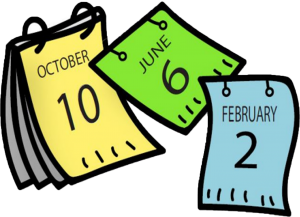Federal law allows individuals to get a free copy of their credit report every 12 months from the three major credit reporting bureaus – TransUnion, Equifax, and Experian. The annual free reports were put in place so that individuals can make sure the information on all their credit reports is correct and up to date.
The free annual credit reports can be requested on the official website www.AnnualCreditReport.com, through the mail using the request form, or by phone toll-free at 1-877-322-8228. You can choose to order one, two, or all three reports at the same time. Visitors to the official website never need to share any credit card or payment information to get the annual free credit report. Note that Federal law does not include access to a free credit score with your report. A credit reporting bureau may choose to provide a free credit score, or they may offer to sell you an optional credit score online.
Due to the COID-19 pandemic, the three major credit reporting bureaus also offer free weekly online credit reports through April 2022. The weekly free reports can be ordered online only through the official website: www.AnnualCreditReport.com.
“People are sometimes surprised to find out that no one is monitoring your credit report for mistakes, old information that should be removed, or even signs of identity theft,” says Peggy Olive, UW-Madison Financial Capability Specialist “Checking a credit report for accuracy is completely up to each individual.”
When ordering a free credit report, you will be asked for private information, including your Social Security Number, birthdate, and address. Ordering a credit report online also includes security questions, such as previous addresses or loans. If you do not answer the security questions correctly, you will be denied online access to your report. You can then order a report over the phone or by mail in a written request form. Sometimes the credit reporting bureaus will ask you to mail in copies of specific documents to make sure you are who you say you are.
People who use an Individual Taxpayer Identification Number (ITIN) instead of a Social Security Number must use the official credit report request form to order their report through the mail.
The “Check Your Free Credit Report: 2/2, 6/6, 10/10” campaign from the University of Wisconsin-Madison Division of Extension wants to make it easier to remember to order those free credit reports. Anyone can sign up to receive an email reminder from Extension three times a year—on 2/2, 6/6, and 10/10—on the campaign’s website: https://finances.extension.wisc.edu/programs/check-your-free-credit-report-campaign/. More than 1,300 Wisconsinites from 71 counties have already signed up for email reminders.
“For some people, the free weekly credit reports provide added reassurance since it’s better to discover an error yourself than to have a creditor find it first,” adds Olive “If keeping up with weekly credit reports sounds overwhelming, I’d encourage you to sign up for our reminder emails to at least check your free reports every four months.”
Reviewing your credit report
Once you have your credit report, be sure the information is accurate. Several of the credit reporting bureaus have taken steps in the past few years to help the free credit reports, also called consumer disclosure statements, to be more user-friendly and easier to understand.
Some information will be easy to review, such as your name, address, or possibly a current employer. Other information can be more confusing. Sometimes a loan may switch hands between creditors, such as a mortgage changing servicers, and the original loan will appear as closed with the new creditor listing the same loan as open. Student loans from the same lender will be posted individually on your credit report each time you take out a loan, even though you only make one payment to the same lender.
In addition to email reminders and links to credit resources, the Extension “2/2, 6/6, 10/10” campaign website provides information for ordering, reading, and understanding your free credit reports. You can also find out how to place a free credit freeze or fraud alert on your credit reports and whether that’s the right decision for you.
For more information on credit reports, contact Extension Fond du Lac County at 920-929–3170.





